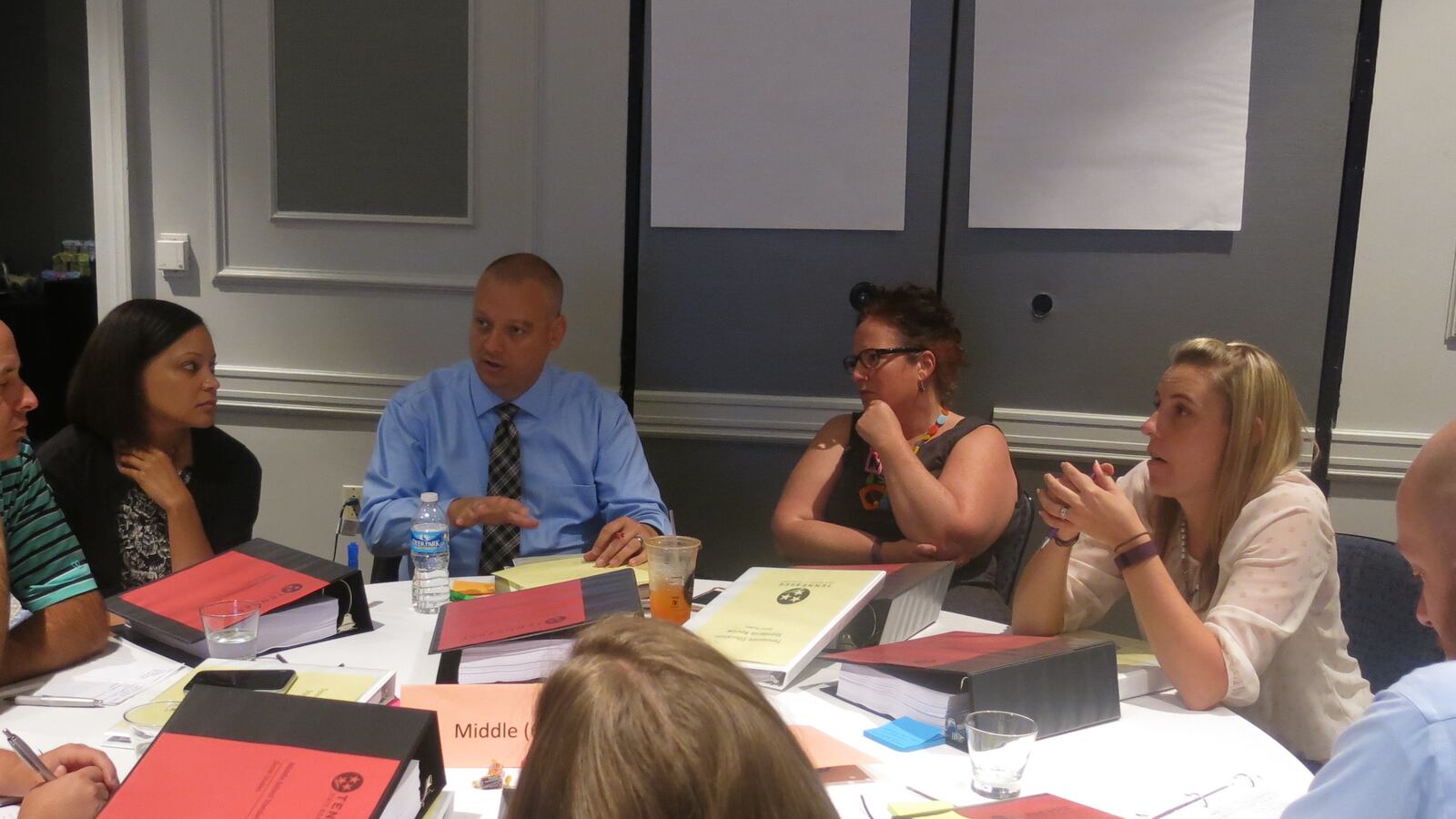Other than when controversies over religion or politics get roped into discussions about social studies, the subject is rarely in the public spotlight in Tennessee. Unlike math and English, social studies doesn’t factor into the state’s accountability system for schools or districts.
But social studies teachers believe the subject is just as important, which is why hundreds participated this year in a public review of the state’s social studies standards — and more than 20 are spending a significant part of their summer break revising the standards.
“Social studies is the context in which we become good citizens,” said Todd Wigginton, director of instruction for Metropolitan Nashville Public Schools and chairman of the review. “It’s important … to really consider how to give our students the best chance (at becoming) more informed decision-makers and understanding all the factors that go into being a responsible citizen.”
The teachers gathered this week in Franklin to kick off their work, which involves digging through thousands of reviews from the three-month public feedback period that ended April 30. Each is equipped with a binder the size of an encyclopedia filled with review comments, most of which came from fellow teachers.
A furor over the content of seventh-grade social studies and its inclusion of Islam prompted the state legislature to pass a law this year prohibiting social studies material from “proselytizing” a specific religion. It also prompted the State Board of Education to bump up its social studies review by two years.
But most of the recent public feedback was more concrete. Frustrated by the sprint to cover a large number of standards before the state’s end-of-year assessment, teachers across Tennessee asked for fewer benchmarks that allow for more in-depth study.
“Expand and shrink,” Wigginton told the teachers. “Expand on concepts but shrink in minutia.”
Even though teachers only just adapted to new social studies standards in 2014, they expressed a shared sense of urgency to get the next set of standards right. Among the qualities they’re seeking: standards that are clear, age-appropriate and relevant.
“It has taken a lot to really shift to the new standards we currently have,” said Hamblen County sixth-grade teacher Scott Ezell, who is leading the middle school review group. But, he continued, “We want to be as perfect as possible in the standards … so that we can help cultivate the best citizens we can in our schools.”
His review panel is taking into account any comments on how world religion is being taught in seventh grade. Last year, controversy erupted in many districts where school boards received complaints that students were being “indoctrinated” into Islam.
“There’s a bit of pressure there because I want to be fair and sensitive to all sorts of cultures and religions,” Ezell said. “Obviously, we’re not here to spread any religion at all.”
"Social studies is the context in which we become good citizens."
Todd Wigginton, Metro Nashville Public Schools
As part of the standards review process set forth by the legislature in 2015, the teachers will revise the standards based on public feedback. The revised standards then will be vetted by a review committee appointed by Gov. Bill Haslam, Speaker Beth Harwell and Lt. Gov. Ron Ramsey. It’s the same process the Common Core standards for math and English went through over the past year, and that the science standards are going through now.
Laura Encalade, director of policy for the State Board of Education, said the level of educator feedback will play a significant role in creating strong new social studies standards, which will reach classrooms beginning in 2019.
“I think it’s going to have really great results, just like it has with math and English,” she said.

